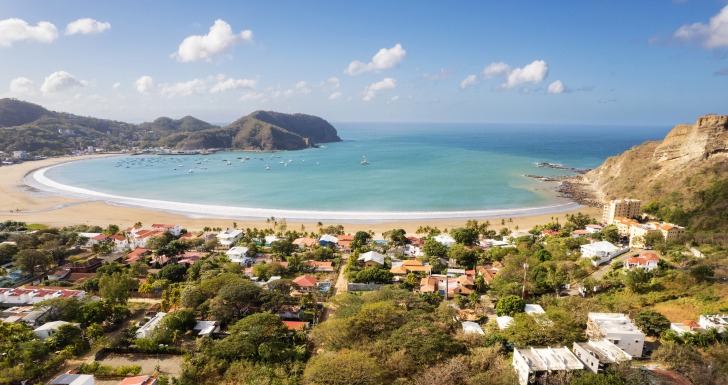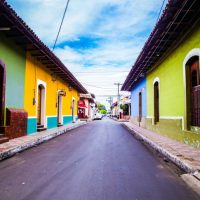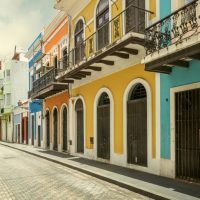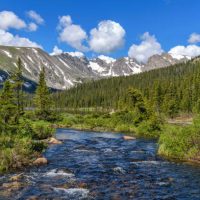Bordering Honduras and Costa Rica, Nicaragua is the largest country in Central America.
It’s also home to the two largest freshwater lakes in the region.
The fun doesn’t stop there.
Just under 10% of the global biodiversity can be found in Nicaragua and there are four World Heritage Sites.
In addition to being full of lakes and volcanoes, the Central American country is also beloved for its 2,000 unique dishes.
It would be hard to hear about all those amazing things and still not want to hop on a plane to visit.
Despite all the natural wonders happening, a lot of unhappy people have made this country in the Caribbean a very dangerous place.
Learn more about the 10 most dangerous cities to avoid if you decide to make the trip.
Contents
10 Most Dangerous Cities in Nicaragua
1. Tipitapa
On the eastern coast of Lago Xolotian, Tipitapa has a lot going on within the city limits.
There are several highways and tourists flock to the beaches.
While these roadways are convenient, they have also ushered in an era of highway robberies.
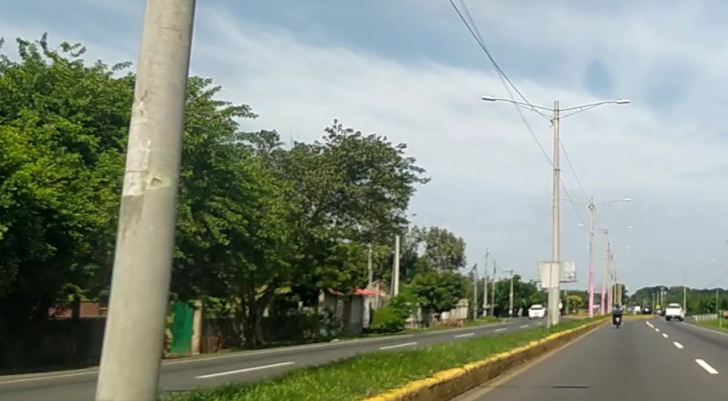
2. Buena Vista
Not all danger is manmade.
Just outside of Managua is one of the active volcanoes, Santiago.
You just can never be too sure of when disaster will strike.
This area is also prone to hurricanes and earthquakes.

3. Zona Rosa
Poverty strikes hard in any community.
It’s also a breeding ground for crime.
This particular city has prostitutes that have been known to commit armed robbery.
Drugs and gangs rule the area, it’s a place to steer clear of.
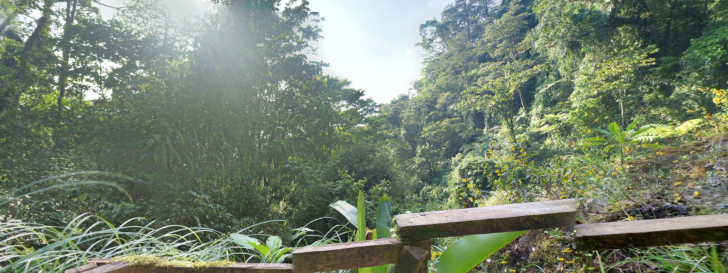
4. Peñas Blancas
Peñas Blancas may be next to a giant lake, but it has the misfortune of also being located on the Pan American highway.
That’s the route that gets you all the way to South America.
As cool as that sounds, the big drawback is the connection to frequent drug exchanges.
Being a border town isn’t always what it’s cracked up to be.
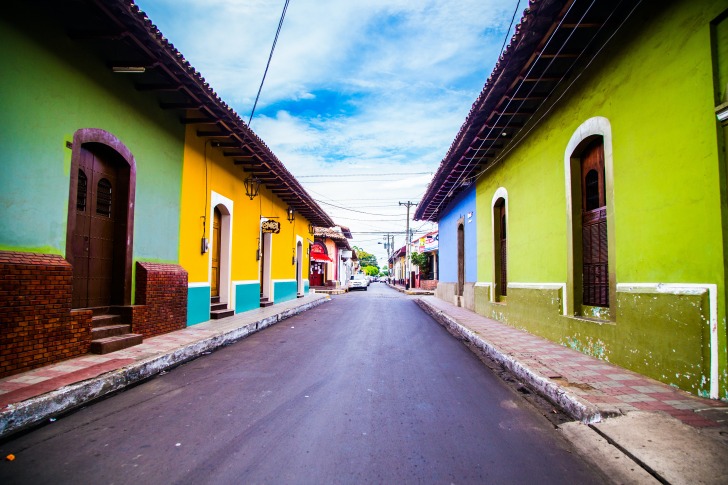
5. Leon
Leon is on the western coast, by the Pacific.
It’s one of the more frequented cities by tourists, perhaps that’s where the 56 crime rate comes from.
Like several other locations on the list, the height of crime comes from the government.
Corruption and bribery are rated just under 90.
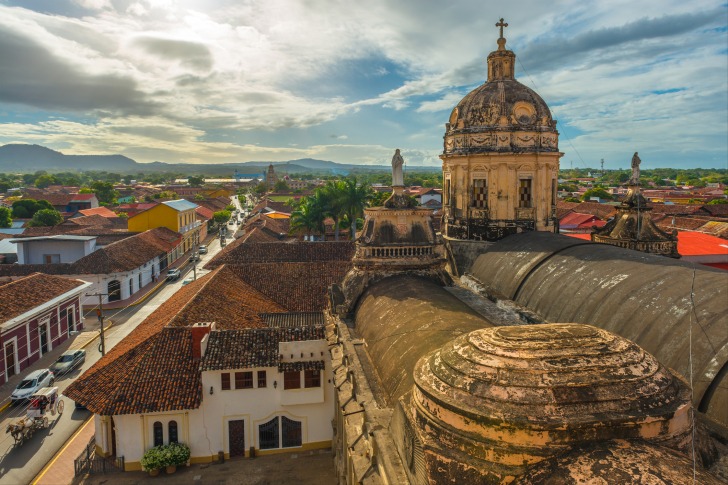
6. Granada
Sitting on the beaches of Lago Cocibolca, Granada is full of relics of the past.
Surprisingly, much of what the colonial time period left behind is around even though pirates stopped by a multitude of times.
The crime rate is 46.
That’s not shockingly high, but what might surprise you is where the crime is coming from.
Bribery and corruption happen twice as much as any other crime.
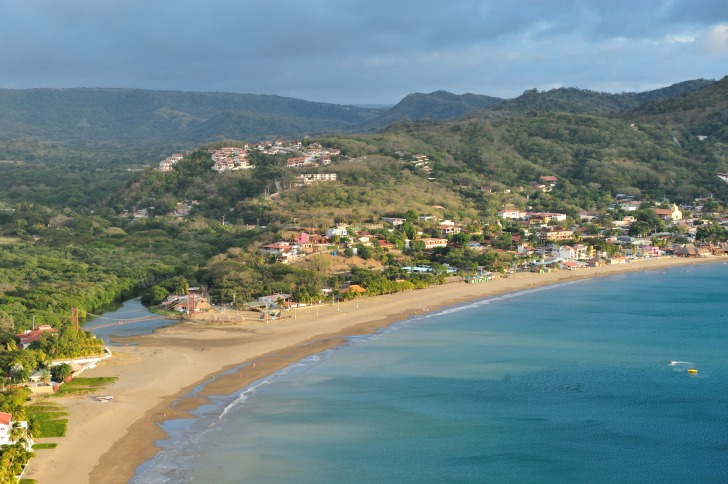
7. San Juan del Sur
In an hour’s drive south, you could be in Costa Rica from San Juan del Sur.
You probably wouldn’t want to, though, because this city is a tourist town.
There are plenty of hotels, beaches, and restaurants to make the stay feel like a luxury.
Be careful, though.
The crime rate is 43 and it leans toward property crimes and drugs.
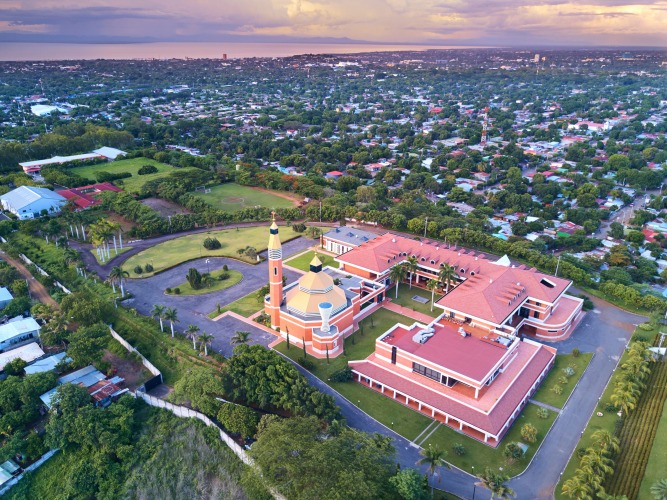
8. Managua
The nation’s capital, located on Lago Xolotian, Managua, is the best place for a tourist to start out.
There are plenty of landmarks and attractions to keep you busy for the duration of your stay.
Sadly, law enforcement is known for taking bribes and being corrupt.
That’s a problem when one of the bigger issues impacting the crime rate of 52 is violent crimes.
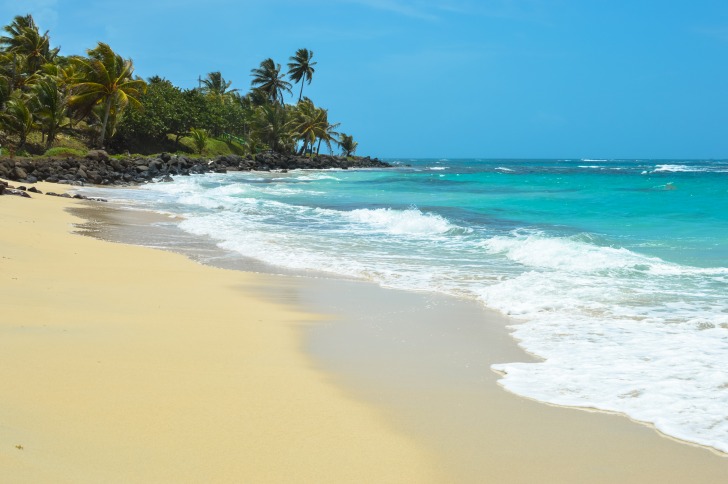
9. Corn Island
Not only does Corn Island have the best views, but it’s also got a little bit of thievery going on.
If you’re staying here, basking in the chill atmosphere of island living, be sure to keep your items shuttered away safely.
Criminals look for unsuspecting tourists to leave their bags unattended.
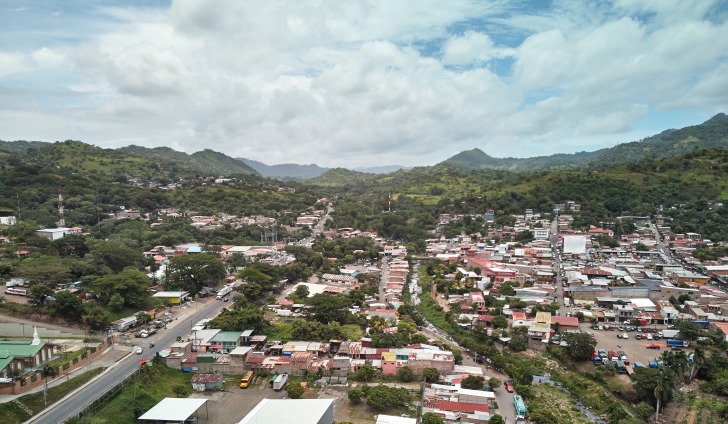
10. Matagalpa
There’s plenty to do here and the locals are quite welcoming.
With a crime rate of 34, staying here isn’t a huge cause for alarm, but it’s always smart to be safe.
What’s dealt with here most is corruption, but drugs are slowly moving up the list.
5 Safety Tips for Traveling to Nicaragua
1. Keep to Cities
One contributing factor to Nicaragua’s crime rate is the lack of law enforcement outside of big cities.
Police are basically non-existent outside of urban settings.
Some of this has to do with corruption; other reasons point to resources and money.
Whatever the reason is, it’s important not to wander out on your own beyond city limits.
The likelihood is higher than comfortable that you could be kidnapped, robbed, or even assaulted.
Sticking to big cities and staying in groups is the safest way not to be a target.
2. Avoid Excessive Adventure
It’s likely that if you’re going to Nicaragua, you might be invested in checking out some of the natural landmarks.
You most definitely should fulfill the dream of soaking up a volcano or viewing wildlife.
However, you might want to cancel any skydiving, rock climbing, or other activities that pose a higher risk for injury.
Although it’s obvious that no one ever wants to get hurt, it might be much more detrimental to do so here.
Serious healthcare is often only found in cities.
If you end up breaking a leg or having a heart attack, it might be a long drive before you’re able to be seen.
That’s only if you are able to be seen at all.
Healthcare is scarce and the equipment is often outdated.
Flying back to the US might be a better option.
That’s how bad it can be.
3. Buy Bottled Drinks
With an abundance of fresh water, what comes out of the tap has to be good, right?
Well, not exactly.
The thing is, the system isn’t as equipped as it should be.
Locals are used to the less-than-stellar water in the cities, but it’s highly likely that tourists will end up with an upset stomach.
You don’t want to need the toilet for a several-hour flight back to the States.
Truth be told, the water is okay to use for showers and tooth brushing, but play it safe when it comes to meals.
If you do end up in a rural community, don’t leave the city without extra bottles of beverages.
The water quality drops off a cliff once you leave the outskirts.
4. Keep Plans for Yourself
Cities like Leon or Granada make visiting feel like time travel.
These old colonial cities have an architecture that is like a blast from the past.
It’s likely that the vibes of those cities and others will make you want to be chatty to learn more.
Socializing with the locals is a great way to absorb the culture, so feel free to do so.
Don’t get so talkative, though, that you overshare.
By overshare, we mean to divulge specific, scheduled plans.
As innocent as an exchange can seem, you really never know who you are talking to and what connections they may have.
Imagine you’re in a trinket shop and spending quite a bit of money.
While at the register, you share that you’ll be hiking the next day in a specific location.
If it’s believed you have plenty of money, that fact could be shared with someone up to no good.
The less known about your trip, the better.
Speaking of not telling anyone your plans, that does not extend to family and friends back home.
In fact, due to the nature of laws being ignored in some areas, it’s probably best that your itinerary is with someone.
Going a step further, it may come in handy to give someone your location at all times.
This person needs to be one who is comfortable with technology and will check up on you from time to time.
In the unfortunate event that something happens to you, having someone who can pinpoint your location could be the difference between life and death.
Heck, you might as well share with more than one person, the more the merrier.
Nicaragua Safety Overview
READ THE FULL REPORT: Nicaragua Safety Review
Safety Index: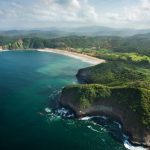
- OVERALL RISK: MEDIUM
- TRANSPORT & TAXIS RISK: MEDIUM
- PICKPOCKETS RISK: HIGH
- NATURAL DISASTERS RISK: MEDIUM
- MUGGING RISK: HIGH
- TERRORISM RISK: LOW
- SCAMS RISK: HIGH
- WOMEN TRAVELERS RISK: MEDIUM
Frequently Asked Questions
What's the safest city in Nicaragua?
Statistically, Leon is rated the safest from sea to shining sea.
It has a little bit of everything that visitors from around the world can find pleasure in.
From clean beaches to active nightlife, it’s one of the most wholesome locations in this part of Central America.
Other cities you’d feel comfortable walking around in include Matagalpa, El Transito, and Las Penitas.
Does Nicaragua have an ex-pat community?
Probably because of the internal issues going on, there really aren’t that many people from abroad living in the country.
With that being said, you’d most likely find English speakers in Managua or Grenada.
It might behoove you to join an online group of ex-pats in Nicaragua before leaving.
Not only could you meet up, but it’s also a good chance to get insider knowledge about where you’ll be touring around.
Many move here as a retirement plan because funds stretch further.
What is the ancestry of Nicaraguans?
Most natives of the country are descendants of Spain.
Percentage-wise, roughly 70% would be considered mestizo, which is having Spanish and Indigenous ancestors.
There are also small traces of Italian, German, and French in the DNA.
